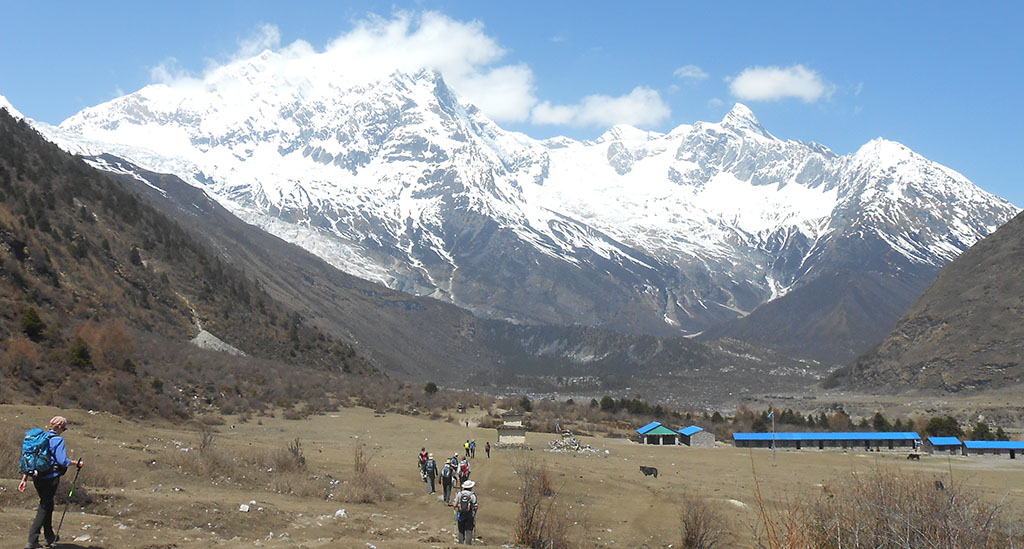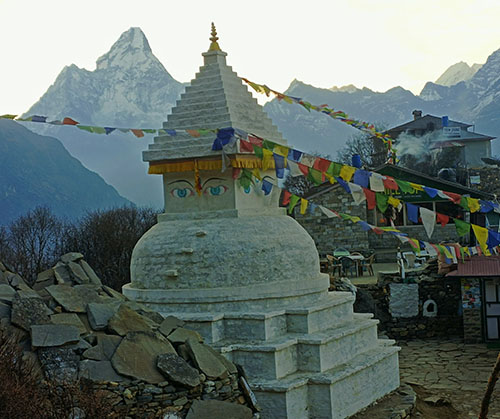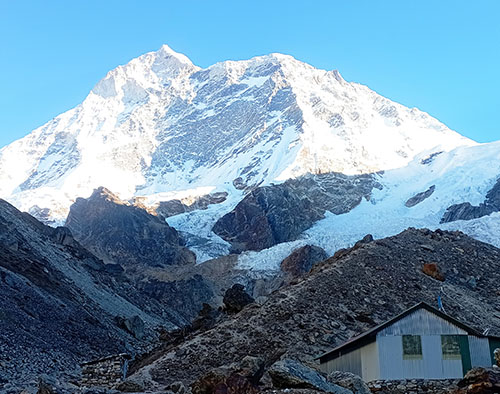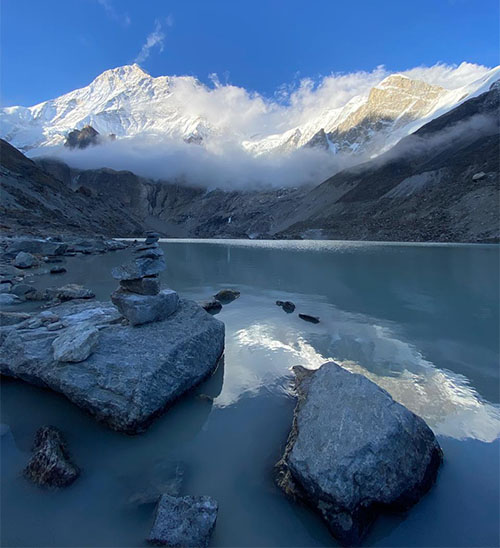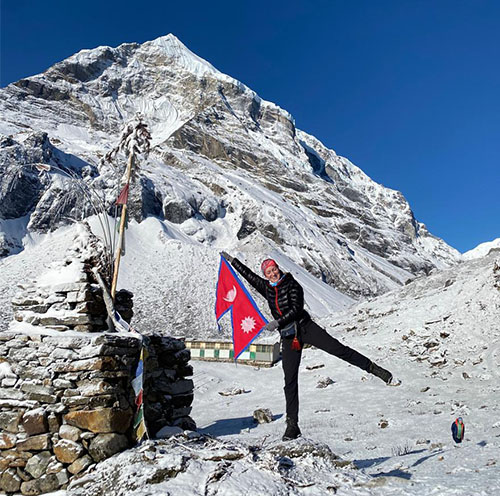The Manaslu region is among the most remote and culturally rich trekking areas of Nepal, providing a glimpse into real Himalayan culture and pristine mountain landscapes. Located in the west-central part of Nepal, the Manaslu Circuit goes around Mount Manaslu (8,163m), the world's eighth-highest mountain. The climb brings one through rugged river gorges, temperate forests, ancient Tibetan-style villages, and terminates on the spectacular high-altitude Larke La Pass at an elevation of 5,106 meters.
Within its proximity to the Tibetan border and the sensitive natural and cultural environment of the area, the Manaslu region has been designated by the Government of Nepal as a Restricted Area. This classification means that access to the region is more strictly controlled than to other trekking regions like the Langtang or Annapurna regions. Multiple permits, including the Manaslu Restricted Area Permit (MRAP), as well as conservation permits for the Manaslu and the Annapurna region, need to be obtained by trekkers. The prohibitions aim at ensuring sustainable tourism, the preservation of the ethnic groups' culture, such as that of the Gurung and Tibetan-Buddhist societies, and security in this fragile area.
If you're planning on booking your trip through Visit Himalaya Treks, you don't need to worry about the paperwork at all; everything is handled by us as part of your trekking package. But if you'd like to understand more about it, this guide includes everything there is to know about the Manaslu Circuit Trek permit system: what permits you require, how much they cost, and why they're important for tourists as well as host communities.
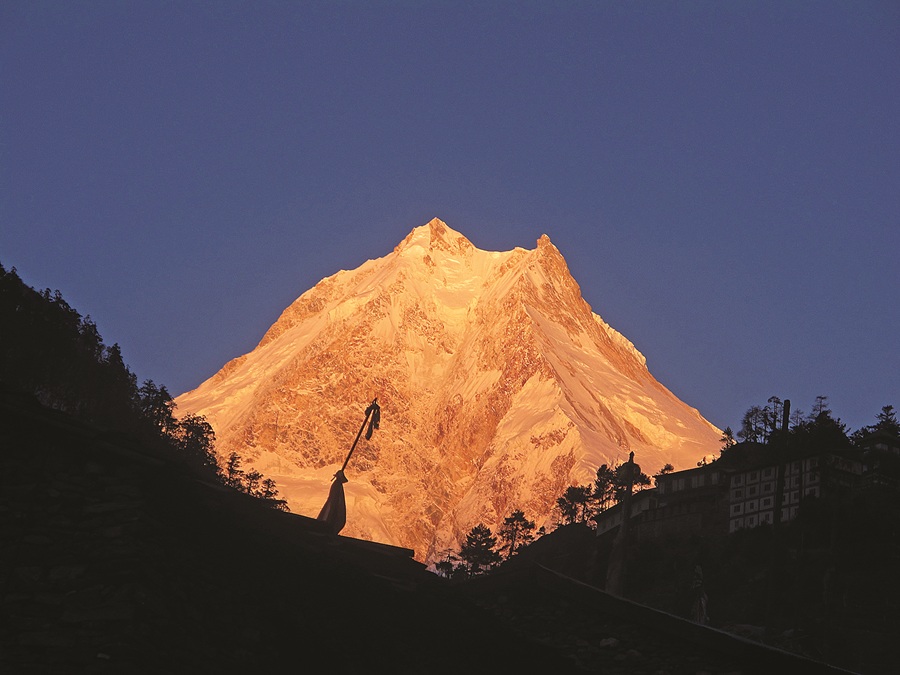
Mount Manaslu, the eighth-highest peak in the world, stands at an elevation of 8,163 meters. It is a breathtaking sight.
Permits Required for Manaslu Circuit Trek.
1. Manaslu Restricted Area Permit (MRAP)
Manaslu Restricted Area Permit, or MRAP, is the major permit required for trekking in the restricted section of the Manaslu Circuit between Sama Gaon and Jagat. The Government of Nepal introduced this permit into practice to coordinate foreign tourism to Tibet, bordering culturally and geopolitically sensitive regions. The fragile ecosystem and heritage, especially of villages of high Tibetan Buddhist cultural significance, must be specially protected. Therefore, the MRAP ensures that tourism is conducted in a controlled, sustainable, and respectful manner.
Trekkers to this sensitive region are not allowed for solo travelers. By government policy, the trekkers must be with a group of two or more and accompanied by a certified guide. This is for safety purposes, responsible tourism, and avoiding harm to surrounding communities. The permit will only be granted by a government-licensed trekking company like Visit Himalaya Treks and not individually.
Cost of Manaslu Restricted Area Permit:
- Peak season (Sept to Nov):
- USD $100 per person for the first 7 days.
- USD $15 per person for each subsequent day.
- Off-season & Spring season (Dec to Aug):
- USD $75 per person for the first 7 days.
- USD $10 per person for each subsequent day.
Other Requirements for MRAP:
- Permission is issued by the Department of Immigration of Nepal (Trekking Section) through the licensed trekking agency.
- A valid passport with a Valid Visa and two passport photographs are necessary.
- Solo trekking is not allowed; a minimum of two trekkers with a certified guide.
2. Manaslu Conservation Area Permit (MCAP)
Manaslu Conservation Area Permit (MCAP) needs to be acquired by any trekkers going to the Manaslu Conservation Area, from the lower villages of Arughat or Soti Khola up to the mid-hill region of the trek. The NTNC maintains this protected area, which was established to safeguard the high biodiversity, unique landscape, and cultural heritage of the Manaslu region. The permit is important in enabling managed and eco-friendly tourism and making a direct contribution to trail maintenance, local infrastructure, and wildlife conservation.
MCAP is valid throughout the duration of your visit within the conservation boundary, and it has a one-time charge and no daily fee. All proceeds from this permit are used to fund community development, environmental education, rehabilitation of habitats, and scientific research in the conservation area. Every trekker must carry this permit if they are trekking individually (in authorized areas) or as part of a group, although the Manaslu Circuit stands out by needing a guide and group due to its restricted area overlap.
Cost of MCAP:
- NPR 3,000 per person (approx. USD $22–$25)
Additional Information about MCAP:
- Valid throughout the trek within the Manaslu Conservation Area
- Fee supports trail maintenance, conservation of biodiversity, and local development.
3. Annapurna Conservation Area Permit (ACAP)
Despite the Manaslu Circuit Larke Pass Trek generally coming under the region of the Manaslu district, it subsequently merges into the Annapurna district after walking over Larke La Pass and descending to Dharapani. The trekkers then enter the boundary of the Annapurna Conservation Area, the largest conservation area managed by the National Trust for Nature Conservation (NTNC) in Nepal. Therefore, an Annapurna Conservation Area Permit (ACAP) is needed to continue or exit the trail legally.
Like MCAP, this permit helps finance environmental conservation, sustainable tourism development, and improvement of the local community in the Annapurna region. Even if you do not plan to get deeper into the Annapurna trails, as soon as you are within the Dharapani and onward area, carrying this permit becomes necessary. This is a one-time fee and does not have anything to do with how long you stay within the area.
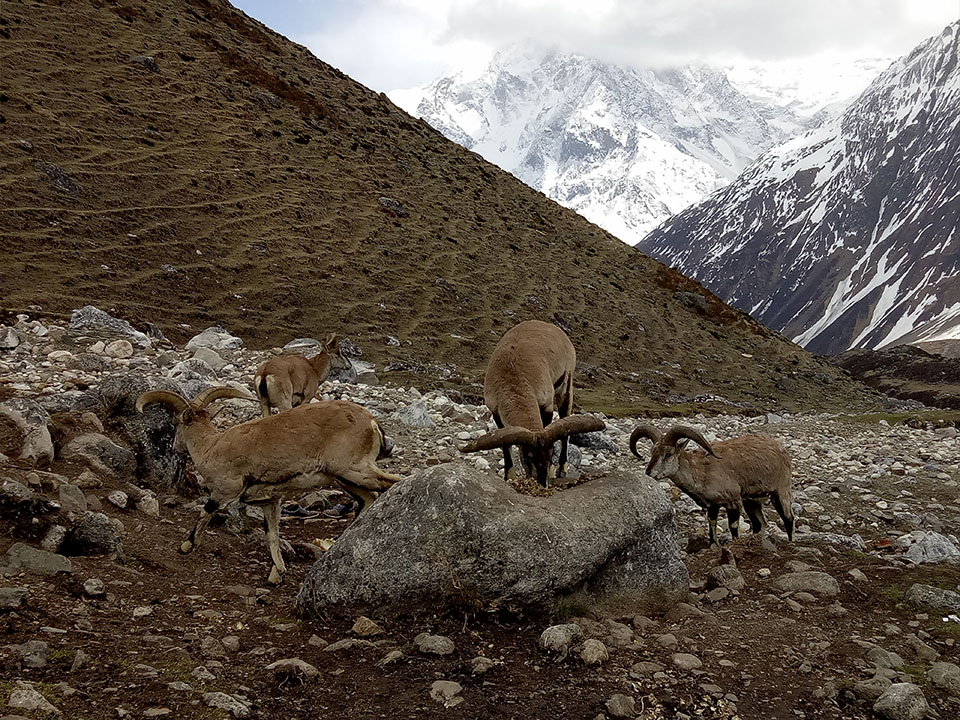
Spotted a wild animal, blue sheep, while trekking to the Manaslu Larke Pass.
Price of ACAP:
- NPR 3,000 per person (approximately USD $22–$25)
Additional Information about ACAP:
- Needed when crossing Larke La Pass and reaching Dharapani.
- Supports conservation, maintenance of trails, and culture preservation.
- Issued by NTNC or administered by your trekking agency.
4. Trekkers' Information Management System (TIMS) Card.
Unlike most of the trekking routes in Nepal, like the ABC or Langtang Valley Trek, the Manaslu Circuit Trek does not require a TIMS card. As a few parts of the Manaslu Circuit fall under the Restricted Area, trekkers will already have to issue the Manaslu Restricted Area Permit (MRAP), along with personal tracking and security details.
The MRAP, along with MCAP and ACAP, maintains your trekking activity monitored and recorded for security and administrative reasons. Since the purpose of TIMS is already fulfilled by MRAP, this card becomes unnecessary. This reduces redundancy in the permit process for restricted trails.
Points of Note:
- Not Required for the Manaslu Circuit Trek.
- MRAP already does trekker tracking and safety.
- Reserved only for restricted trekking areas.
- Helps in simplifying permit logistics for trekkers.
Where and how are the permits for the Manaslu Circuit Trek obtained?
If you book your trek with Visit Himalaya Treks, you don't need to worry about handling permits since we do that for you. We acquire all permits necessary for the Manaslu Circuit Trek, including the Manaslu Restricted Area Permit (MRAP), Manaslu Conservation Area Permit (MCAP), and Annapurna Conservation Area Permit (ACAP), in advance with the help of our experienced staff. These permits are officially issued by the Nepal Tourism Board (NTB) and the Department of Immigration in Kathmandu.
To process your permits, you’ll need to provide the following:
- Valid passport with Visa (a clear photocopy).
- Four passport-size photos.
- Travel insurance copy (recommended, especially for emergency evacuation).
It's necessary to finish your paperwork before the trek begins since these permits are not transferable and must be presented at various checkpoints along the route. Allow Visit Himalaya Treks to handle the formalities while you get ready for your trip and we handle the logistics.
Why Visit Himalaya Treks for the Manaslu Circuit Trek?
Booking your Manaslu Circuit Trek with Visit Himalaya Treks assures a seamless and completely compliant experience in one of the restricted trekking areas of Nepal. We take care of all the permit processes, from collecting your documents to acquiring the necessary approvals, so you will not have to deal with bureaucracy or visit government offices in Kathmandu. Our team makes sure to adhere to all government regulations stringently, specifically under restricted area rules, which demand at least two trekkers and a certified guide.
Also, our qualified guides are not just licensed by the Nepal Tourism Board but are also approved to work in restricted areas. They are familiar with both the terrain and the permits required to get through, so you can safely travel through all the checkpoints. Or if you are a solo traveler, we also arrange group departures where you can join others so that we can ascend as a minimum group, hence your trek will be legal as well as enjoyable.
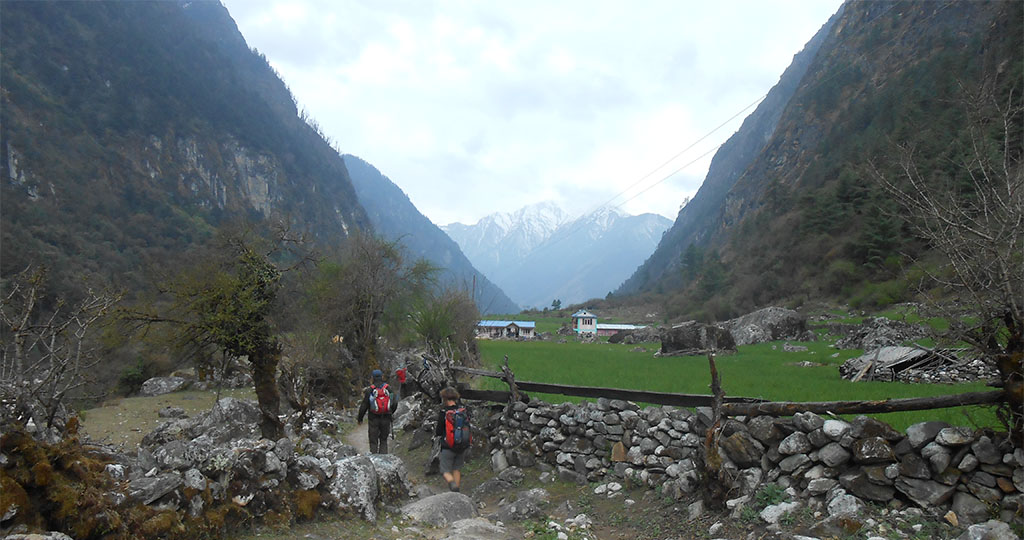
Trek around Mount Manaslu.
FAQs
1. Can solo trekking be done in the Manaslu region?
No, solo trekking is not permitted in the Manaslu Restricted Area. You must be in a group of at least two trekkers and also have a licensed guide registered with a trekking agency in order to obtain the required permits.
2. What is the combined cost of all the permits?
Depending on the season and trekking days, the overall permit cost generally comes to USD $150 to $200 per trekker.
3. Can I obtain the permits myself?
Not all of them. The Manaslu Restricted Area Permit (MRAP) can only be obtained through a registered trekking agency like Visit Himalaya Treks. While MCAP and ACAP can be obtained separately, they are included in our trekking package to make it a hassle-free arrangement.
4. Do I require a TIMS card for the Manaslu Circuit Trek?
No. You don't require a TIMS (Trekkers' Information Management System) card for the Manaslu Circuit as your MRAP already includes tracking and security information.
5. What are the permits I require for the Manaslu Circuit Trek?
To trek the Manaslu Circuit, you need three permits: the Manaslu Restricted Area Permit (MRAP), the Manaslu Conservation Area Permit (MCAP), and the Annapurna Conservation Area Permit (ACAP). You do not require a TIMS card.
6. Can a foreigner obtain a Manaslu trek permit online?
No, foreign trekkers cannot apply for a Manaslu trek permit online themselves. The MRAP must be completed through a registered Nepal trekking agency like Visit Himalaya Treks, who complete all the paperwork and applications required.
7. How long does it take to get the Manaslu trekking permits?
Permit processing typically occurs in 1 to 2 business days if arranged through a licensed trekking agency. Visit Himalaya Treks to ensure your permits are arranged before your trek.
8. Are there Manaslu permits included in tour packages?
Yes, with most reputable agencies like Visit Himalaya Treks, the permit fees are included in the total package cost. This saves time and ensures that all legal and safety requirements are met.
9. Am I entitled to a refund of the Manaslu trek permit fee if I cancel my trip?
No, all trekking permit fees are non-refundable, regardless of the Nepal Tourism Board and Department of Immigration regulations, even if your trek is postponed or canceled.
10. Why is the Manaslu region restricted?
The Manaslu region borders Tibet and is home to vulnerable ecosystems and traditional cultures. It is a Restricted Area to assist in maintaining its delicate natural and cultural heritage and to promote responsible tourism.
11. Can I still do the Manaslu Circuit Trek on my own if I arrange all the permits?
No, it is mandatory to take a licensed guide for the Manaslu Circuit Trek. You cannot legally go into the restricted area without a guide and one other member in your group even if you have the permits.
12. Are there any discounts on Manaslu trek permits for children or students?
No, there are no child or student discounts on MRAP, MCAP, or ACAP permits. All non-U.S. citizens pay the same fee, regardless of age.
Manaslu Circuit Trek Permits Conclusion.
Walking in the isolated and culturally diverse Manaslu district is an honor, and it brings responsibility with it. Getting the right permits not only makes us legally compliant but also goes towards conservation in local villages, trail management, and community development.
Trekking with Visit Himalaya Treks ensures that all your permits are taken care of in the proper manner, your trek is properly supported by certified professionals, and your trek is compliant with government regulations. With our knowledge and care, you can let us show you all else while fully appreciating the mountain scenery and the wealth of the experience.

